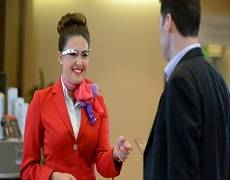August 14, 2014
Sustainable buildings are not more costly to construct, finds report
 The widely held belief that sustainable buildings are more costly to construct is dispelled in a new report which shows that achieving lower BREEAM ratings can in fact, incur little or no additional cost. Researchers from Sweett Group and BRE examined the actual costs and savings associated with a wide range of sustainable building strategies. The research team applied cost data from real construction projects to three case study buildings – an office, secondary school and community healthcare centre – to produce detailed capital and operational cost information. The report; Delivering sustainable buildings: Savings and payback also reveals the associated payback to be gained from reduced utility costs and finds that even where achieving higher BREEAM ratings incurs some additional costs, this can be paid back within two to five years through the reduced costs of operating a more sustainable building. More →
The widely held belief that sustainable buildings are more costly to construct is dispelled in a new report which shows that achieving lower BREEAM ratings can in fact, incur little or no additional cost. Researchers from Sweett Group and BRE examined the actual costs and savings associated with a wide range of sustainable building strategies. The research team applied cost data from real construction projects to three case study buildings – an office, secondary school and community healthcare centre – to produce detailed capital and operational cost information. The report; Delivering sustainable buildings: Savings and payback also reveals the associated payback to be gained from reduced utility costs and finds that even where achieving higher BREEAM ratings incurs some additional costs, this can be paid back within two to five years through the reduced costs of operating a more sustainable building. More →





 The UK’s public sector spends almost twice as much on outsourced services as the country’s private sector, according to research from the
The UK’s public sector spends almost twice as much on outsourced services as the country’s private sector, according to research from the 

















June 27, 2014
Physical workplace should provide an environment in which people can thrive
by Bostjan Ljubic • Comment, Facilities management, Workplace, Workplace design
More →